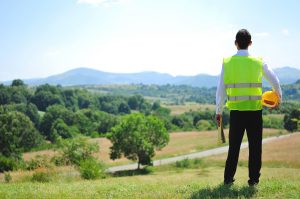 It's an awful lot easier for a builder to say that they can build on your land than it is for them to actually do it.
It's an awful lot easier for a builder to say that they can build on your land than it is for them to actually do it.
But I'll bet that when it comes to your own home, you want a builder who has already faced the types of challenges they'll encounter on your land—and knows how to address them for you. Because odds are there will be challenges.
I've been building homes with my father for the last 18 years of his 53-year home building career. Several years ago, we began building on our clients' land with just a few homes here and there. We learned some extremely valuable lessons!
Now let's stop right there. Imagine a guy who's been building homes for 50 years, who learns brand-new things about building when he starts building on an owner's rural land instead of in a fully-developed neighborhood.
Is there really that much difference? You better believe it!
Really, building a home is the easy part. It's preparing the build site that changes the game.
If you're building in neighborhoods, you're pretty much building the same thing, over and over, on land that's already been prepared—sitting right next to a paved road, with utilities already on the site. All you have to do is buy a permit, level the dirt, and you're off to the races.
But building on rural land, as we've learned over the last several years, is a completely different animal. You might have soil issues, drainage issues, floodplain issues; you might run into issues with the title; you may not even be able to drive a truck to the site if it's rained in the last 48 hours. For rural land, it often takes longer to prepare the land than it does to actually build the house.
Considering building your own home on your own land? If you're interviewing builders, ask them how many homes they've built on rural land before. Ask about the title problems they've come across, and how they resolved them. Ask how they know there aren't any easements on your land that will create a problem.
What about soil testing and foundation engineering? What's their process for creating site access and maintaining it during inevitable bad weather (so your build isn't delayed)? How do they know the site isn't in the 100-year or 500-year flood plain?
The answers to those questions should be straightforward, and should involve a process for finding solutions and resolving issues. "Sounds good" or "we'll see" aren't good answers, because they don't address the particular details of your home and your land.